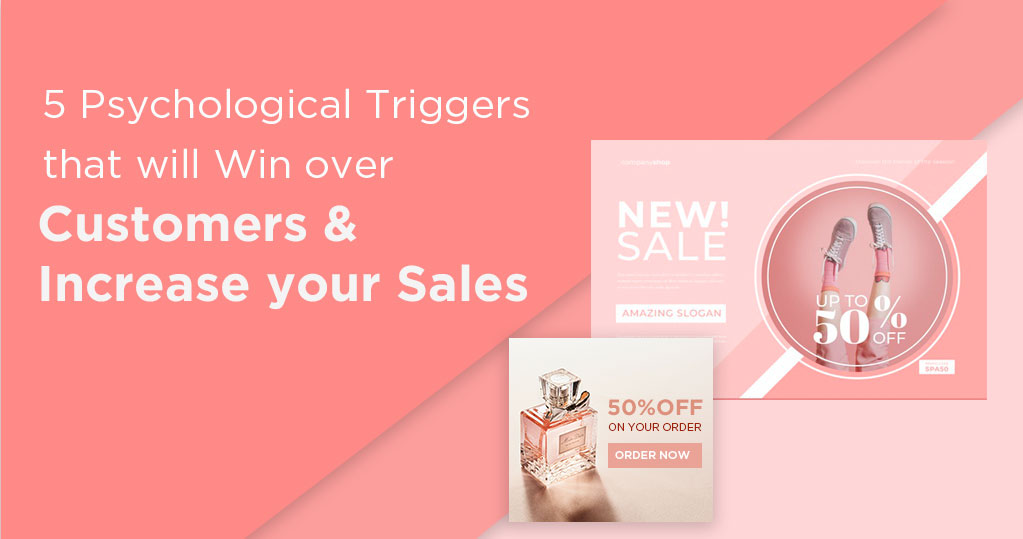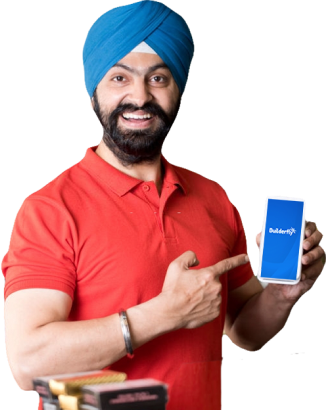Marketing is all about trying to influence people.
But here’s the thing: How can you possibly influence people if you don’t really understand them? Our thoughts exactly.
This is why, for marketing to be successful, it helps to first understand the psychology behind consumer behavior. What makes people tick? Why do people tend to make certain decisions and not others? And most importantly, what can you do to get people to not just buy from you, but turn them into lifelong advocates for your brand?
This blog post will help you figure out how to do that. Intrigued?
Read on to find out 5 psychological triggers that you can take advantage of in your marketing.
Human Beings Need to Fulfill Certain Needs
According to an American psychologist Abraham Maslow, people have a hierarchy of needs that they are constantly seeking to fulfill.
The hierarchy of needs is arranged in a pyramid, with the most basic needs, at the very bottom of the pyramid, being fulfilled first, and the less important needs being fulfilled (or seeked out) once those basic needs are met.
First comes physical needs (the need for food, health, water, and sleep). After that is the need for security and shelter. Once those needs are met, people look to satisfy their social needs (to love and be loved; to feel belonging). After that, people aim to satisfy their ego (to boost their self-esteem, confidence, and power). Lastly comes the need for self- actualization or growth.
What You Can Do:
Your brand should be fulfilling one of the following needs:
- Physical
- Security
- Social
- Ego
- Self-actualization
If not, then your business is probably suffering as a result.
Think about exactly what needs your brand helps your customers to fulfill. Does your brand or product help your customers feel like they belong? Speak to their social needs. Do you help your customers feel like they are more powerful? Tell them how you satisfy their ego.
People Are Influenced by Free Things
In Predictably Irrational, Ariely talks about one study he performed in which students were offered two different types of chocolates: a Lindt truffle for 26 cents and a Hershey’s Kiss for 1 cent. At these prices, 40% of people bought the truffle and 40% bought the kiss.
But when the prices of the chocolates both dropped by one cent (so the Lindt truffle was 25 cents and the Hershey’s Kiss was free), 90% of people went for the free Hershey’s Kiss.
And that’s the power of free.
People Are Attracted to Things That Are relevant to Them
According to the mere exposure effect, people prefer things that feel familiar to them. The more that we are exposed to something (or someone), the greater liking we develop for that thing (or person).
What You Can Do:
Be consistent in your marketing efforts. Because the more consistent you are, the more familiar you will become to your customers—and the greater liking they will develop for your brand (and products).
People Remember Stories, Not Facts
Human beings have been telling stories since the beginning of the time. And with good reason: Stories allow us to connect with one another and understand each other better. They entertain us. Hey, why do you think it’s so easy to become engrossed in a good movie or book?
Moreover, people are more likely to remember stories. One study found that, after a number of one-minute pitches, 63% of people remembered the story, whereas only 5% were able to remember a statistic that was given.
On that note, Uri Hasson from Princeton says that “a story is the only way to activate parts in the brain so that a listener turns the story into their own idea and experience.”
So if you storytelling the right way, your story-listeners will likely turn into your customers.
What You Can Do:
Create (and tell) a story for your brand, in which your customer is the hero (not your product).
Create content that engages your customers. Whether it’s in your blog posts, your emails or on your social media, find a way to relate to them.
Your About page is a great place to do this. Instead of boasting about your accomplishments, your About page should be where you humanize your brand.
Once People Hear About Something, They Hear About it Everywhere They Go
Ever noticed how after you hear about something for the first time, you start seeing it or hearing about it everywhere you go?
This is called the Baader-Meinhof Phenomenon and there are two reasons for it: Thanks to selective attention, your brain subconsciously pays more attention to that new piece of information you picked up. And because of confirmation bias, each time you hear about it is interpreted as proof that the subject is new and trending (whereas in reality, you just hadn’t been paying attention or aware of it beforehand).
What You Can Do:
This phenomenon helps explain why retargeting can be so powerful. Once people find out about your brand and product, they will naturally pay more attention to your ads. And they will pay more attention to any information that confirms what they already know to be true about your brand or product (or what you’ve told them about it).
Hone in on your USP (unique selling proposition), and craft a message that proves to people just how great your brand really is.
Conclusion
Marketing is an ever-changing industry. Trends, technology, and expectations will continue to change over time. But there’s one thing that won’t change (at least not anytime soon): the human brain.
So take advantage of these timeless, aforementioned psychological triggers, and your business will reap the benefits. Guaranteed.








